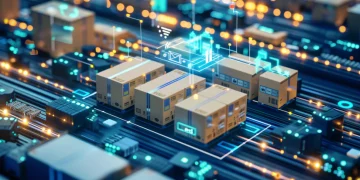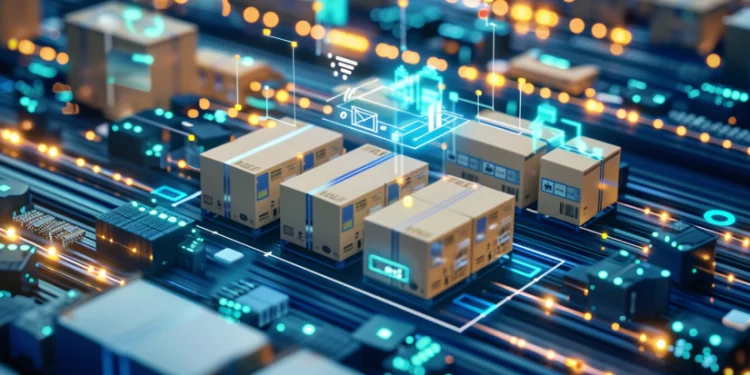The warehouse, a cornerstone of the global logistics industry, is undergoing a transformation fueled by artificial intelligence (AI). AI-powered warehouse management systems are emerging as a game-changer, promising to optimize storage, streamline fulfillment processes, and enhance overall efficiency.
How AI is Revolutionizing Warehouses:
- Smart Inventory Management: AI algorithms can analyze historical data, sales trends, and real-time demand to optimize inventory levels. This helps prevent stockouts and overstocking, reducing associated costs and improving product availability.
- Enhanced Order Picking: AI can guide robots and warehouse associates to the most efficient picking routes, minimizing travel time and maximizing picking accuracy.
- Predictive Maintenance: AI can analyze sensor data from warehouse equipment to predict potential failures and schedule preventative maintenance, minimizing downtime and ensuring smooth operations.
- Dynamic Warehouse Layout: AI algorithms can optimize warehouse layouts in real-time based on inventory levels, product characteristics, and order patterns, improving space utilization and picking efficiency.
Benefits for Businesses:
- Increased Efficiency: AI-powered systems can significantly improve warehouse throughput and order fulfillment speed, leading to faster deliveries and improved customer satisfaction.
- Reduced Costs: Optimized inventory management, improved space utilization, and predictive maintenance can lead to cost savings in warehousing operations.
- Enhanced Scalability: AI can adapt to changing order volumes and product types, allowing warehouses to scale up or down efficiently as business needs evolve.
Early Adopters and Real-World Examples:
Several companies are already reaping the benefits of AI in their warehouses:
- Amazon: The retail giant utilizes AI extensively in its warehouses for tasks like inventory management, order picking, and route optimization.
- Walmart: Walmart is deploying AI-powered systems for optimizing product placement and predicting demand fluctuations.
- DHL: This logistics giant leverages AI to improve warehouse efficiency and streamline fulfillment processes for its global network.
Challenges and Considerations:
While AI offers significant advantages, some challenges need to be addressed:
- Integration with Existing Systems: Integrating AI with existing warehouse management systems (WMS) can be complex and require upfront investment.
- Data Security: Reliance on AI necessitates robust data security measures to protect sensitive inventory and customer information.
- Job Displacement Concerns: Automation powered by AI could lead to job displacement in warehouses. Upskilling and retraining programs will be crucial to address these concerns.
Looking Ahead:
AI integration in warehouses is no longer a futuristic concept but a tangible reality. As AI technology continues to evolve and becomes more affordable, we can expect wider adoption across the logistics industry. AI-powered warehouses will play a significant role in creating a more efficient, agile, and cost-effective supply chain ecosystem.























